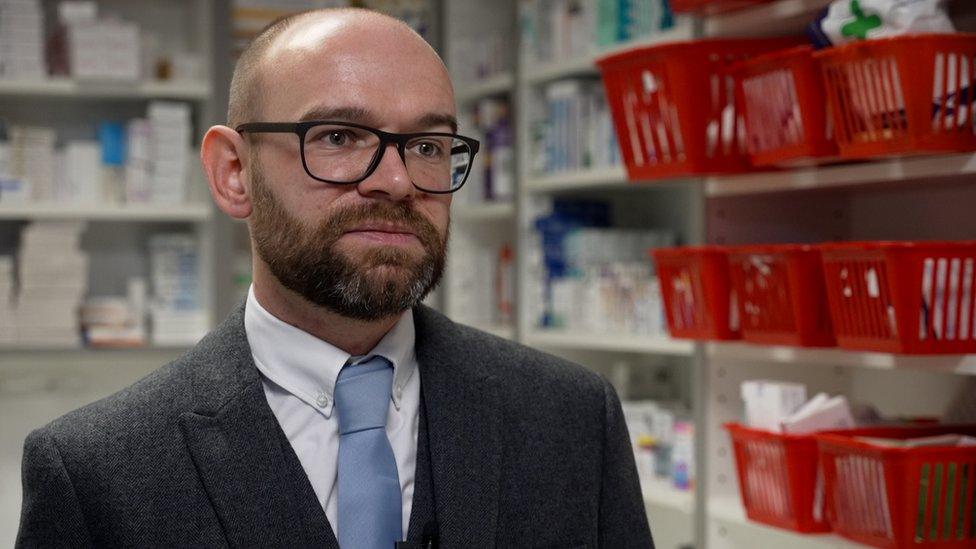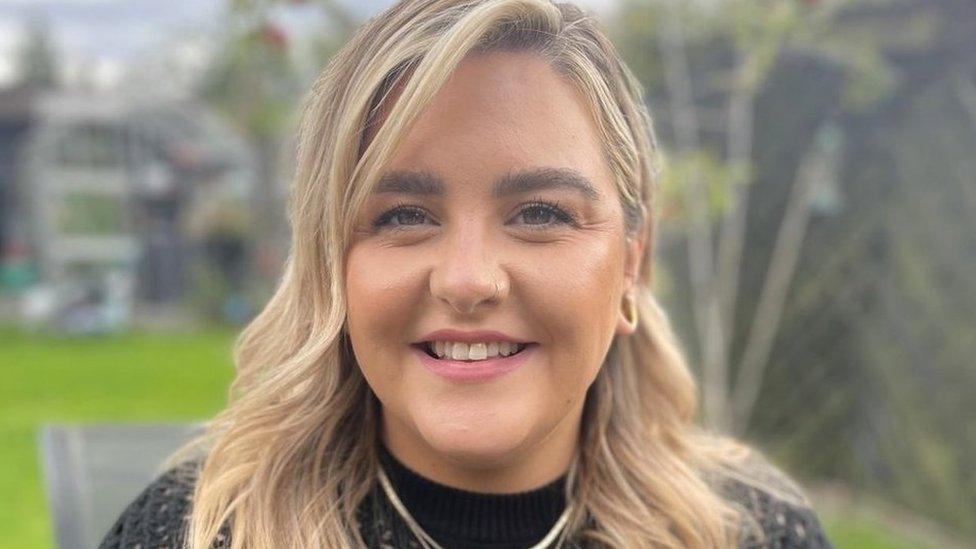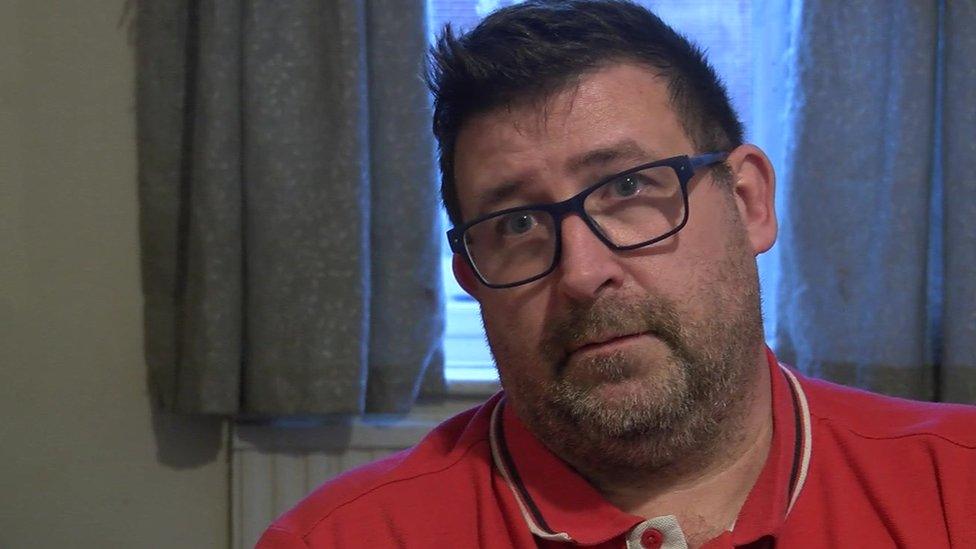My anxiety is back since ADHD medication ran out
- Published

Angela Kirkpatrick says that her symptoms have returned since her prescription ran out
ADHD patients say they have struggled to get hold of medication since a UK-wide shortage was announced in September.
Angela Kirkpatrick was only on the medication for six months but she says her symptoms have returned since her prescription ran out.
Since then, her anxiety is not as well controlled.
"I can only explain it as a voice in the back of your head, and even if I can pretend I'm not focusing on it, I'll go to sleep and I'll wake up at 03:00 thinking about it."
The 41-year-old, who lives in Edinburgh, has had a lifelong struggle with anxiety.
The aerial acrobatics instructor said she turned to the sport as a way of switching off.

Angela says aerial acrobatics helps her switch off
She was diagnosed with ADHD after a private assessment. The medication she was given was transformative.
"It stops the overthinking part of my brain and allows me to focus," she said.
Angela says the medication improved her productivity, attention and reduced her anxiety.
However, she hit a snag, along with thousands of people, with the recent shortage.
After being on medication for six months, a missed doctor's appointment led to her prescription running out.
The shortage aggravated the situation, leaving her stressed and without access to medication for weeks.
Angela's concern extends beyond her own circumstances.
"[The medicine] makes my life better but I know I've lived without it," she said.
"I feel worse for people who have been on medication their whole life and aren't able to get it."

What is ADHD?
Attention Deficit Hyperactivity Disorder (ADHD) is a behavioural condition, often identified in childhood, typically under 12 years, but can also be diagnosed in adults.
Symptoms include restlessness, difficulty concentrating, and impulsiveness, which may evolve with age.
Treatment for ADHD varies. Children may receive educational support and possibly medication, while adults often start with medication and may benefit from cognitive behavioural therapy (CBT).
Effective management of ADHD involves coping with challenges in organisation, time management, stress, and social interactions.

Significant gap
Scotland is currently facing a severe shortage of ADHD medication, affecting approximately 26,000 people who use these drugs.
The shortfall, expected to persist until the end of the year, has forced patients to ration their existing medication.
Doctors have been instructed to stop prescriptions for new patients until the supply issue is resolved.
Adam Osprey, of Community Pharmacy Scotland, said the significant gap between supply and demand was primarily due to supply chain issues and a marked increase in demand over recent years.
"This situation is causing substantial difficulties for pharmacy teams, who... are currently unable to fulfil many prescriptions," he said.
The shortage is forcing some patients to go without their medication, which can have a detrimental effect on their lives.

Adam Osprey said there had been a marked increase in demand over recent years
Addressing the question of why more medication cannot be produced quickly, Mr Osprey said: "The [manufacturing] process involves international ingredients and a just-in-time supply model, making it challenging to rapidly increase production."
The pharmacist advised patients to consult their prescribers about alternative treatments.
Supply issues
The pharmaceutical company Takeda manufactures the ADHD drug Elvanse.
It acknowledges a significant increase in the demand in the UK over the past two years, which has contributed to supply challenges.
The company cited intermittent production issues at one of their contract manufacturing partners as a contributing factor.
Takeda said it was committed to resolving the situation quickly.

Arlene McAinsh is the mother of a 20-year-old son who has autism, ADHD, and anxiety
Families and people with ADHD say they are experiencing distress due to the need to ration or stop their medication.
Arlene McAinsh is the mother of a 20-year-old son who has autism, ADHD, and anxiety.
He is currently on the medication Guanfacine.
Ms McAnish said: "Unlike some medications that can be started or stopped at will, it's specifically advised not to stop [Guanfacine] abruptly."
Currently Ms McAnish has two and a half weeks worth of medication.
She is concerned about what will happen when this runs out.
Ms McAnsish pointed to how efforts are made to ensure a continuous supply of essential medications like insulin for diabetes.
She said similar measures should be in place for all critical medications, like the ADHD medication her son is on.

Ms McAnish's son Jason is on a medication called Guanfacine
A recent BBC report highlighted a seven-fold increase in adult ADHD prescriptions over the past decade.
Data from Public Health Scotland revealed that nearly 26,000 NHS patients were prescribed ADHD drugs in 2022/23.
The current medication shortage reflects this rising demand.
A Scottish government spokesperson said: "A National Patient Safety Alert has been issued regarding supply disruptions for various medicines used in the treatment of ADHD."
The Scottish government said the shortages were caused by a number of factors including post-Brexit manufacturing issues and an increase in global demand.
They hoped that the shortages will be resolved by the end of December. The spokesperson added that anyone affected should speak to their clinical team.
Related topics
- Published6 October 2023

- Published28 August 2023

- Published13 November 2023

- Published10 November 2023
